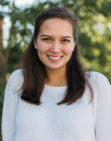This project is about how humans predict the apocalypse to come from religious higher beings while simultaneously manufacturing the apocalypse for themselves through environmental destruction. From dump sites to pipelines to rising sea levels, minorities have been disproportionately affected by environmental problems and the lack of environmental protection in lower-income areas, but these individuals contribute least to the rise of such damages. Instead, these problems are occurring because of the unsustainable practices of corporations, who are led by individuals who are often richer and as a result do not suffer consequences for their actions. This project calls attention to this issue so people are more aware and will choose to make more sustainable decisions.
I came up with this project because environmentalism has been a subject of interest in my art since I was a child, and I wanted to continue exploring how to represent these themes in art. I decided to take a different approach than the typical “we need to save the planet” mentality because the reality is that the earth would thrive in the absence of humans, and we really need to focus on saving our ability to continue existing on the planet. That is where the idea came for apocalyptic imagery, a visualization of what the earth could look like if we do not make necessary changes as a society, and to observe that we take our presence for granted.
If you would like to actively help a local organization focused on environmental racism, I recommend Cultivate Charlottesville, an organization that assists the community in creating healthy and equitable food systems, and advocates for food justice.
Additional Reading
Baz-Art. “Artist Profile – ROA – Street Art ( Video #4)” 2018. https://www.youtube.com/watch?v=qFlqLvVsWl8
Berger, Jody. “What’s Likely to Cause Human Extinction – and How Can We Avoid It?,” 2019. https://earth.stanford.edu/news/whats-likely-cause-human-extinction-and-how-can-we-avoid-it.
Schlänger, Zoe. “Race Is the Biggest Indicator in the US of Whether You Live near a Toxic Waste Site.” Quartz. Quartz, March 22, 2017. https://qz.com/939612/race-is-the-biggest-indicator-in-the-us-of-whether-you-live-near-toxic-waste/.
Additional Credits
I would like to thank my parents for their support and my sister for so enthusiastically agreeing to score the video. I would also like to especially thank Professors Willis Jenkins and Lydia Moyer for agreeing to be interviewed for this project; I am so sincerely appreciative of their time and effort contributed. Thank you to Professor Federico Cuatlacuatl for being my project advisor, and Delaney Buskard for helping me learn more about environmental racism. Finally, I would like to thank Kelly Hardcastle Jones and Emily Gadek, along with the Religion, Race & Democracy Lab for giving me the opportunity to create this project.
This project was made possible by

Get Involved
Learn about forthcoming podcast episodes, newly published projects, research opportunities, public events, and more.
Potential Students


